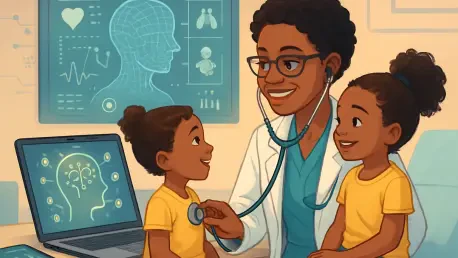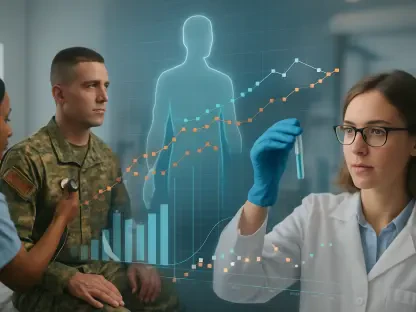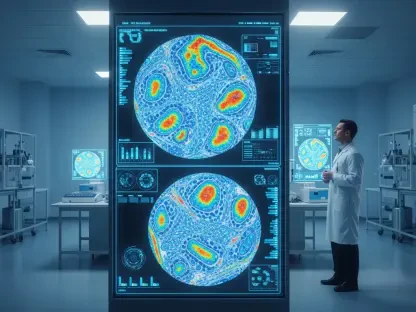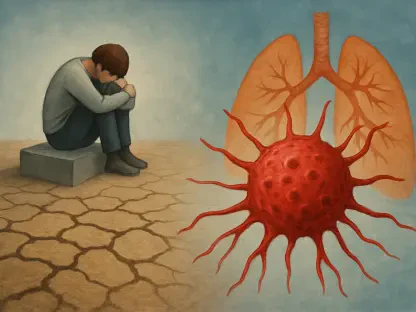In an era where technology is reshaping every facet of healthcare, Great Ormond Street Hospital for Children NHS Foundation Trust (GOSH) in the UK stands at the forefront of a groundbreaking initiative to integrate artificial intelligence (AI) into pediatric care. This renowned institution, long celebrated for its dedication to young patients, is now charting a visionary path to enhance clinical outcomes, streamline operations, and pioneer research through AI. With a meticulously crafted strategy spanning the next few years, GOSH aims to harness cutting-edge tools to personalize treatment and optimize resources. This ambitious plan not only promises to elevate the standard of care for children and young people but also positions the hospital as a global leader in digital healthcare innovation. The journey ahead is one of cautious optimism, balancing the transformative potential of AI with an unwavering commitment to safety and ethical responsibility.
Revolutionizing Pediatric Healthcare with AI
Enhancing Patient Care Through Technology
At the heart of GOSH’s transformative vision lies a commitment to leveraging AI for improving patient care and operational efficiency across various hospital functions. The strategy includes deploying AI solutions to manage operating room schedules with precision, predict intensive care unit demand, and even summarize critical patient data for clinic visits and ward rounds. These applications are designed to alleviate the administrative burden on clinicians, allowing them to focus more on direct interaction with patients. By automating routine tasks such as drafting responses to patient inquiries, AI tools are poised to enhance both the quality of care and staff productivity. A notable advancement in this realm is the planned introduction of ambient scribing technology, which has shown promise in reducing documentation challenges. This shift toward personalized and efficient care delivery underscores a broader mission to ensure that every child receives tailored attention in a resource-optimized environment.
Optimizing Resources for Better Outcomes
Beyond direct patient care, GOSH is tapping into AI to revolutionize resource management and operational workflows, ensuring that hospital systems run seamlessly to support clinical excellence. Predictive analytics will play a pivotal role in anticipating bed occupancy in critical units, enabling better planning and allocation of scarce resources. This proactive approach minimizes bottlenecks and ensures that young patients receive timely interventions when they need them most. Additionally, AI-driven insights will streamline administrative processes, cutting down on inefficiencies that often hinder healthcare delivery. The emphasis on such innovations reflects a strategic understanding that effective resource utilization is as crucial as medical expertise in achieving superior health outcomes. By integrating these technologies, GOSH aims to create a responsive healthcare ecosystem where every operational decision is data-informed, ultimately benefiting the children and families who rely on the hospital’s services.
Building a Responsible and Innovative AI Framework
Prioritizing Ethical AI Deployment
A cornerstone of GOSH’s AI strategy is the ethical and responsible implementation of these powerful technologies, ensuring that innovation never compromises patient safety or trust. From the outset, the hospital has committed to aligning with national guidelines for lawful AI use, establishing robust governance frameworks to monitor and evaluate every tool introduced. Clinicians will retain ultimate decision-making authority, supported by an ethics committee tasked with navigating complex moral considerations. This careful approach addresses potential concerns about AI’s implications, placing patient well-being at the forefront of technological adoption. Every AI solution will undergo rigorous testing to meet stringent safety and efficacy standards, reinforcing the hospital’s dedication to maintaining the highest levels of care. This focus on ethics ensures that the integration of AI enhances rather than undermines the human element central to pediatric healthcare.
Phased Implementation and Workforce Empowerment
Recognizing that sustainable AI integration requires a structured roadmap and a skilled workforce, GOSH has outlined a phased approach to adoption alongside comprehensive training initiatives. The initial focus is on building strong oversight mechanisms to lay a solid foundation for future expansion over the next few years. Subsequent phases will scale AI applications across various departments, aiming for full integration that positions the hospital as a trailblazer in pediatric care innovation. Simultaneously, significant investment in staff development through webinars, workshops, and live demonstrations will foster an AI-literate workforce capable of critically engaging with these tools. Collaboration with clinical leaders ensures that training aligns with frontline needs, promoting a culture of adaptability. This dual emphasis on phased rollout and workforce empowerment highlights a strategic balance between technological progress and human readiness, ensuring that AI serves as a supportive partner in delivering exceptional care.
Reflecting on a Vision for the Future
Looking back, GOSH’s commitment to integrating AI into pediatric healthcare marked a defining moment in balancing innovation with responsibility. The hospital’s efforts to enhance patient care, optimize operations, and prioritize ethical considerations set a powerful precedent for others in the field. As the strategy unfolded, it became clear that the phased implementation and focus on workforce training were instrumental in building trust and efficacy in AI tools. Moving forward, the emphasis shifted to sustaining this momentum by continuously refining governance frameworks and exploring new AI applications tailored to evolving needs. Stakeholders were encouraged to collaborate on identifying emerging challenges and solutions, ensuring that technology remained a force for good in transforming young lives. This journey reflected a profound dedication to not just keeping pace with digital transformation, but leading it with a child-centered approach that others could emulate.









